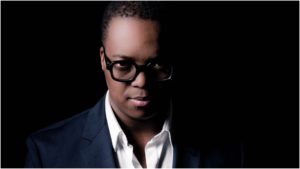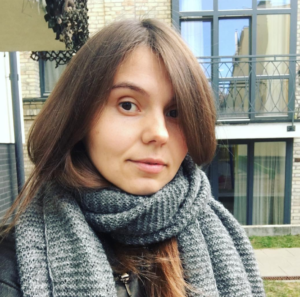
Q & A: Tenor Levy Sekgapane On Performing Bel Canto Repertoire, His Idol, & Plácido Domingo
By Polina LyapustinaSince tenor Levy Sekgapane won Operalia in 2017, he has been in great demand and with every subsequent performance he is quickly establishing himself as one of the best of his generation. It is no surprise that 2018 has been big year for Sekgapane as he has made major debuts in European stages from Baltic states to the U.K. and Italy.
OperaWire recently had an opportunity to speak with the tenor about how his journey through 2018 and what he looks forward too when 2019 comes around.
OperaWire: You made several role debuts this season. Which of them did you enjoy most?
Levy Sekgapane: I had four debuts this year, and all in a row, so I had one month for preparation every time. I did Nemorino in “L’Elisir d’Amore” and that was my favorite role.
It’s a perfect piece and a lovely character; a bit silly, but optimistic about love. I used to be like this a few years ago. So I could go on stage and just live. I’m still young, so it’s not a big challenge.
OW: What was your biggest challenge of 2018?
LS: The greatest challenge for me was Guido in “Enrico di Borgogna” at the Donizetti Opera Festival. The character was not only the most challenging this year but the most difficult I’ve done so far.
We did this production of “Enrico di Borgogna” with period instruments and in a baroque style. It’s the third opera Donizetti wrote but the first to ever be performed. So it’s basically a baroque piece. And it’s low for me. So everything sounded offbeat.
I also had to learn my role on stage, because I came very late. When we started the first rehearsal I didn’t know a word, and having me like this was a challenge for Maestro de Marchi. But I’m a very fast learner, so I managed to learn it in one week. We had a great team to work and an amazing director Silvia Paoli. I’ve never worked with her before, but she is great, she is a stage animal. If she said something, she had to explain and to show it, which not many directors do.
OW: Can you elaborate on why you feel that is essential in a director?
LS: Silvia Paoli is a perfect director for me, because she is on stage with us, she sings all the opera. She could come with a note, or to show where to move, and if I asked which part she was referencing, she just started to sing my part. She is wholly with her singers. That is incredible for me, and I have so much respect on her.
She also allowed us to bring our own sights. Dialogue was a very important part. It’s always a nightmare, when you cannot believe your role, but also cannot change anything, especially in a new production.
Also Silvia worked a lot on logic. Donizetti was 19-years-old when he wrote the opera. He was not so clear about the intentions in text. The text is so old that even Italians cannot understand it fully. We were arguing a lot about it. It was very hard to make sense out of it for our idea. So the director worked hard on finding what those words could mean today. It required a strong complex vision from her.
OW: You worked with many great artists this year. What did you learn from your colleagues?
LS: I really like to learn from artists. To be an artist you have to be complete. Which means to be a great technician, to be on stage. To live there you have to show the love for what you do. To respect your art, and also people around you. Pietro Spagnoli, with whom I worked on “Il viaggio to Reims” at the [Gran Teatre del] Liceu was always so concentrated during rehearsals, but at the same time he was so kind and funny, never argued with anyone. He worked really hard and remained focused. I never saw him on his phone during the rehearsals and when he performed, he gave it all to the audience. In that moment his efforts and technique turned into pure art. That’s what I mean to be a complete artist.
Another example — Juan Diego Flórez. I saw his rehearsals in Pesaro for “Matilde di Shabran.” That was a dream. And Corradino is my dream role and I will do it very soon. When I saw him doing this role, I immediately fell in love.
OW: Talking about great voices, how has it been to grow up as an artist in the era of DVD/Blu-Ray and to see great artists up close?
LS: I remember I was watching “Armida” with Lawrence Brownlee and Renée Fleming, I will never sing like that in my life. Or sing like [Jonas] Kaufmann in “Werther” in Paris or at the Met. It’s incredible. Or “L’Elisir d’Amore” with Netrebko and Villazón in Vienna. It’s not possible even to dream to sing like they sang. And it can easily kill your potential, your dreams.
But I always felt I had something, what God gave me, and it’s just bigger than me, than what I want. There is something I can offer to the world. Pavarotti knew, he had this. Once they asked him: Why you are like this? Who told you, that you are great? He said, that God kissed his voice. Kaufmann, Flórez, Domingo, Carreras — they all have it. Something bigger. I don’t compare myself to them, but I always felt my talent, larger than me and the whole world. Of course it needs control and development, and I’m always looking to improve after every performance. I still feel that this gift is bigger than what I do and what I have yet to do.
OW: Tell me about an artist that has inspired you?
LS: I became a Rossini singer after I heard Gregory Kunde singing “L’Italiana in Algeri.” He was the greatest with his light voice for a long time. And now he has this amazing ability to sing dramatic tenor roles so naturally. From the greatest Rossini tenor to deep and dark dramatic tenor. He did both Verdi’s and Rossini’s Otello in one year. Nobody does that.
In 1991, he sang “La donna del Lago” in La Scala and he was 26, I think, but he had low notes already. He was the most colorful voice singing that role ever. And once he got to 40 his voice dropped and got bigger. And then he never let anything ruin his voice. Neither age nor disease could ruin him. He is a hero.
OW: What do you love most about opera?
LS: I love and I believe in classic productions. They are like opera itself for me. I think, opera survives today, because of classic productions. If you see an old production of “Il Barbiere di Siviglia” by Zeffirelli — it has a touch, it doesn’t go away from traditions. That’s important. And it’s respectful to the historical context, which is crucial to understand and also to feel opera in a right way.
I get happy when I’m invited to do “La Cenerentola.” I can dress like a prince and be a prince. It’s like a fairy tale. Think about it: a girl was treated badly, but she always knew, that she got more inside and she wanted more, but in those times she remained there, in those circumstances. In our times, it would be harder to believe, that she stayed. But you can use your imagination. With all those costumes and set design. It’s a story and a history. It’s why we all were so happy to watch Prince Harry’s wedding. Fairy tales. It’s an absolutely different world. That’s what we need, that’s what opera can give. And for me personally it’s very pleasant to live this life on stage.
OW: So how could we open up this beautiful world to new audiences?
LS: Maybe it’s not the most popular opinion, but I don’t think we should change a lot in opera, or go far from classics and history. People mostly don’t understand Italian or German, and not every opera is so impressive visually, but every piece has such a strong cultural and historical background, which is of great value already.
So we need to teach people to re-approach opera. To find out more, not just watch. And to get this amazing and complex experience, which is normal for older people. Because older people don’t want something simple. This multi-layered world is way more interesting. We just need to show this value to younger audience.
OW: If you could improve anything in the opera industry, what would you do?
LS: I would change the powerful people. We need more honest and kind people everywhere. We need to remove borders. We need to make the industry more accessible for young singers.
People, who make those decisions are not honest quite often. They have their own interests, and so many talented singers are left overboard.
We need strong people to fight for opera, to make an effort. Like Plácido Domingo does. He discovered so many stars. He is doing so much for the future of opera. And why does everybody love him? Because he loves everyone. He is a star, but he is very honest. We need more people like him.



